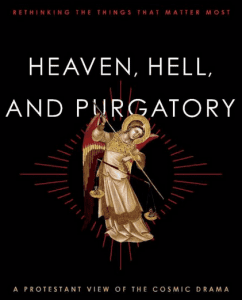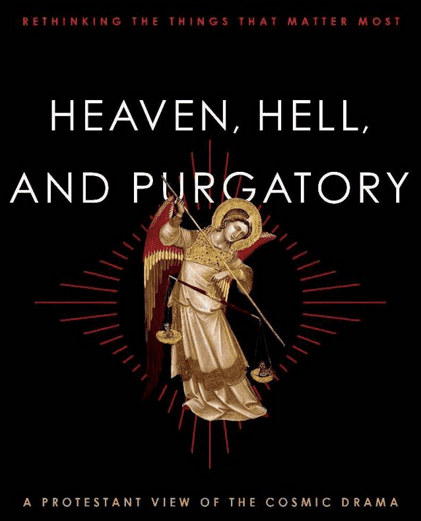 Jerry Walls is one of the few evangelicals by confession who also affirms purgatory. I don’t agree with Walls here, but after a full book on the topic, Walls reduces his argument to a single chapter in Heaven, Hell, and Purgatory. (Purgatory in the theory of Catholicism is only for Christians; it is not about a second chance; it is entirely for Christians and concerns their sanctification and/or satisfaction.)
Jerry Walls is one of the few evangelicals by confession who also affirms purgatory. I don’t agree with Walls here, but after a full book on the topic, Walls reduces his argument to a single chapter in Heaven, Hell, and Purgatory. (Purgatory in the theory of Catholicism is only for Christians; it is not about a second chance; it is entirely for Christians and concerns their sanctification and/or satisfaction.)
How do you respond to this: The only difference between an affirmation and a denial of purgatory is that the former thinks the Christian not only needs entire sanctification but will be conscious and participatory in the process while for the traditional Protestant (denier of affirmation) entire sanctification occurs instantaneously (at death, at resurrection) and is entirely an act of God (and God’s grace).
Some Protestants are not bothered; others are deeply offended. E.g., John Calvin:
Therefore, we must cry out with the shout not only of our voices but of our throats and lungs that purgatory is a deadly fiction of Satan, which nullifies the cross of Christ, inflicts unbearable contempt upon God’s mercy, and overturns and destroys our faith. For what means this purgatory of theirs but that satisfaction for sins is paid by the souls of the dead after their death? (91-92)
Walls rightly refers here to the “long shadows of Tetzel” — purgatory was at the heart of the Reformation. Is purgatory contrary to the doctrine of salvation by grace alone? Here is Walls’ defense:
1. Heaven is a place of total perfection and that means humans must be perfected to enter into heaven.
2. The vast majority of people are far from perfection at death. Even the most devout of Christians is far from perfect.
3. Those who enter must be (1) imperfect, (2) instantly perfected by God, or (3) be sanctified through a conscious, willing freedom and cooperation of the person after death. #1 is rare; #2 is most of the Protestants and #3 is Catholic, Orthodox and a small number of Protestants.
Thus, every theology must have some kind of purgatory theory: either instantaneous or through a process.
To be sure, some in the Catholic tradition have not emphasized purgatory as sanctification but as satisfaction of justice. That is, contrition, confession and penance are part of the Catholic tradition’s theory of satisfaction, extended into purgatory. The satisfaction theory deconstructs the doctrine of salvation by grace alone.
But Walls thinks one can reject the satisfaction theory of purgatory and still affirm the sanctification theory of purgatory. This is the theory that seems to have been affirmed as well by C.S. Lewis, and he shows how Lewis’ own evangelicalism consistently came to expression in his belief in purgatory.
Christ as perfect penitent (Lewis); the importance of repentance and faith and grace; virtue ethics and character formation. We are called by God to become little Christs — in other words, character transformation. (Again, he’s expounding Lewis.) Christ is doing this but we have freedom to cooperate or not. So Walls thinks purgatory is consistent with Lewis’ mere Christianity. Here is Lewis:
Our souls demand Purgatory, don’t they? Would it not break the heart if God said to us, “It is true, my son, that your breath smells and your rags drip with mud and slime, but we are charitable here and no one will upbraid you for these things, nor draw away from you. Enter into joy”? Should we not reply, “With submission, sir, and if there is no objection, I’d rather be cleaned first.” “It may hurt, you know”—”Even so, sir.” (110)
So the issue for Walls and Lewis is character, not forgiveness.
The issue then is freedom, our freedom, and our part in the process: Are we passive recipients of the zap of sanctification or do we, in our freedom, respond to God’s transforming grace?
The Reformed locate faith and grace in justification but have traditionally believed that sanctification requires response. In this life, for sure. Why not, Walls ask, in the next life?











